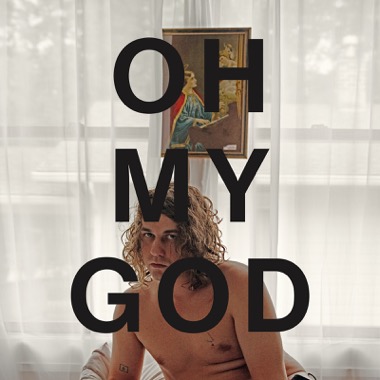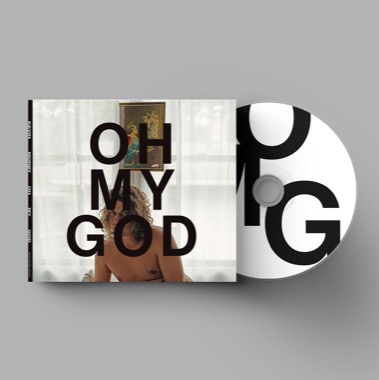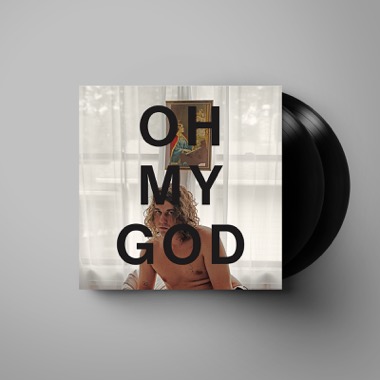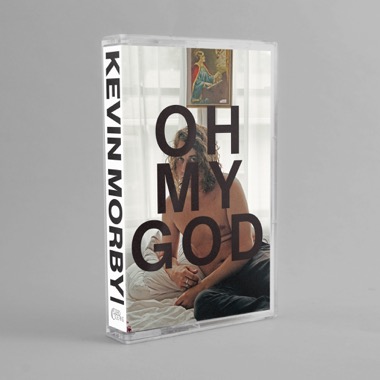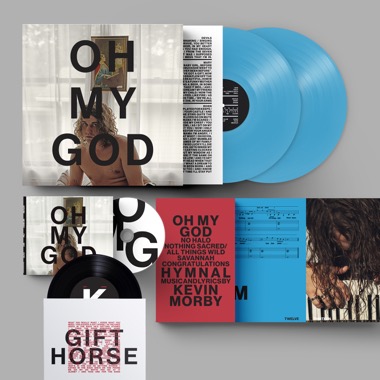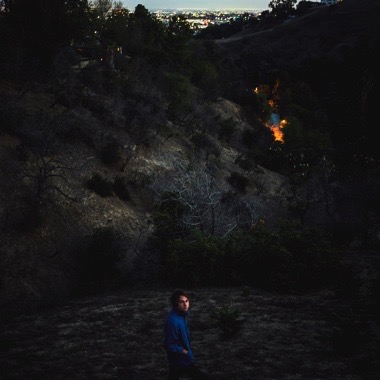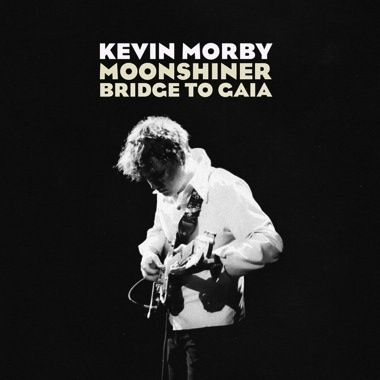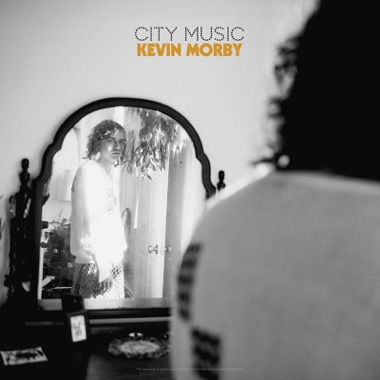Kevin Morby
Oh My God
Throughout his four solo albums and myriad records of various collaboration, Kevin Morby has recognized in his work the ubiquity of an apparent religious theme. Though not identifying as “religious” in the slightest, Morby—the globetrotting son of Kansas City who has made music while living on both coasts before recently returning to his Midwestern stomping grounds—recognizes in himself a somewhat spiritual being with a secular attitude towards the soulful. And so, in an effort to tackle that notion head-on and once-and-for-all, he sat down in his form of church—on planes and in beds—and wrote what would become his first true concept-album: the lavish, resplendent, career-best double LP Oh My God.
“Religion is around all of us,” Morby says. “It’s a universal language and there is profound beauty in it. I’ve found it a useful tool within songwriting, as it’s something everyone can relate to on some level. There are religious themes or imagery in a lot of what I’ve done, so I wanted to get all of that out and speak only that language for a whole record. It’s not a born-again thing; it’s more that ‘oh my god’ is such a profound statement we all use multiple times a day and means so many different things. It’s not about an actual god but a perceived one, and it’s an outsider’s view of the human experience in terms of religion.”
Morby admits he has viewed the world through a skewed spiritual lens his entire life. As a kid he was told by his working-class parents that he was a Methodist, though the family rarely if ever made good on that claim come Sunday; he saw fire-and-brimstone billboards on Kansas roadways with the aim of scaring heathens straight. Despite his ignorance and indifference, religion seemed to be everywhere, and as Morby grew as a musician—playing bass for Woods, fronting The Babies, and with his solo career—he embraced its influence with his work. In 2016, on the heels of a trio of critically-acclaimed albums, he wrote the protest song “Beautiful Strangers” about the devastating world events of that year, and in it he inserted multiple “oh my god”s as pleas of desperation. The song took off and the phrase became a mantra for Morby, inspiring him to weave the exclamation conceptually into the fabric of an entire album. In effect, he sought to highlight how that immortal turn of phrase embodies so much of our relationship with the sacred and profane—how religion is all around us, always, and that by simply uttering an OMG we enforce its ubiquity and ability to endure while humanizing its reach.
In January 2017, preceding the release of his fourth solo record City Music, Morby went into producer Sam Cohen’s Brooklyn studio for four days to record a handful of material written with his usual folk-meets-lo-fi-electric-guitar sound in mind. Cohen, with whom Morby made his 2016 breakthrough Singing Saw, had started recording the new songs with a business-as-usual mentality when on the third day he was struck with an idea: Rather than create what was becoming Singing Saw: Part 2, what if they stripped everything back and used only a few colors at a time instead of the entire Morby rock palette, focusing on Morby as hyper-literate singer instead of guitar-slinging troubadour?
“Sam suggested that we make songs that sound like sonic pop-art that only have a few colors, like a Keith Haring piece,” Morby says. “My other records had tons of colors, so we decided to keep this stark, like a painting that’s black-and-white with one vibrant blue. We went back to the drawing board and thought about what we wanted to do conceptually across an entire piece. And for the first time I could do exactly what I wanted, as I had time and the ability to get everything precise. Sam encouraged me to let my lyrics sit on top of everything else, and that discovery and the confidence that came with making my fifth record helped me realize the new direction was exactly where we needed to be. We opened it up completely and set out to make something in its own universe.”
Over the remaining day-and-a-half, Morby and Cohen recorded new versions of four songs—“Oh My God,” “No Halo,” “Savannah,” and “Nothing Sacred/All Things Wild,” the latter becoming a mission statement for the new sound and featuring Morby singing, Cohen playing a subtle organ part, and Morby’s drummer Nick Kinsey on congas. Breaking the songs down into their separate parts served Morby’s religious theme perfectly, as did the blueprint of “Beautiful Strangers,” and over the course of 2017 he wrote an album’s worth of similar songs while on tour.
As Morby jetted around the world playing shows, he came to realize that all that air travel was making its way into his music, too. He had always used his time in the sky to work on songs and listen to demos he had recorded, but he began noticing an aero-dynamic emerging in his lyrics as well. “Flying can be something of a religious experience for many people, myself included,” he says. “It’s unnatural, and it can be so scary being that high up—a few big bumps can even make an atheist pray. You’re anxious as you take off and thinking about death, then you level off and suddenly you’re in this kingdom above the clouds. There’s a holy feeling, and a big part of the record’s theme is being above the weather. The first song, ‘Oh My God,’ starts with chaotic hammering on a piano and then smooths out with a choir singing; it’s meant to mimic how I feel on an airplane.”
All that flying also meant Morby was sleeping in a new place each night, a situation he also learned to embrace creatively—most of Oh My God’s songs were written from beds. Morby typically starts and ends each day by playing guitar or writing songs while under the covers, a practice that mimics prayer in myriad ways. “There’s something sacred about working from bed,” he says. “It’s where you make love and where you dream. I always write just before I go to sleep and right when I wake up. It’s where I can access that feeling of dreams. Any bed is always a sanctuary, but my bed at home is the Holy Grail.”
Morby sought to represent these sentiments visually for the release of Oh My God. In addition to using a portrait of him reclining in his own fluffy-white bed at home in Kansas City on the album cover, he also worked with the filmmaker Chris Good on a short film to accompany the release. The film stars Morby as he wanders through a dream-like series of encounters—on planes, in cars, in a diner, at home in his back yard—and presents a Gondry-esque vision of the album and its holy mood.
Meanwhile, in January of 2018, a full year after their initial session, Morby and Cohen returned to the studio together to complete the album’s recording. They fine-tuned the rollicking opening trio—starting with the title track, then first single “No Halo,” and “Nothing Sacred/All is Wild”— and played with various styles and techniques throughout. The ethereal “Congratulations” was written in a dream, a first for Morby. (“Someone had been singing the chorus to me over and over, and I woke up in the morning and walked to my piano and wrote it then and there.”) “Seven Devils” features a ripping guitar solo by Morby’s bandmate Meg Duffy that evokes a distorted hellfire, and “Piss River” is a stream-of-consciousness, poetic and profound tune featuring harp played by Morby’s friend Mary Lattimore while the singer has a call-and-response conversation with himself. Saxophone duties throughout the record were handled largely by Cochemea Gastelum, and a seven-member choir appears as well. Morby directed Cohen in the creation of a track called “Storm (Beneath the Weather),” a 90-second ambient instrumental piece made with synthesizers to mimic what it can feel like under the clouds. “Above the weather, you’re safe and nothing can get to you; it’s heavenly, like you achieved peace,” Morby says. “Below that you’re subject to the insanity of humanity, or Mother Nature. I wanted a weird, atonal sound on the record to represent a storm, which feels in-line with the pop-art idea.”
“Hail Mary” may be the album’s grandest moment and is recognizable as one of the few guitar-driven songs that hearkens back to his previous work. Its heavy scope is still apparent despite the fact that Morby and Cohen edited it down from its original 15-minute-long, multiple-verse version into a concise five minutes and three verses. And as the final song, “O Behold,” makes a familiar, just-in-case farewell from an airplane seat (“If the plane’s on fire/know I love you”), the listener can sense the credits rolling as the clouds begin to break, grips loosen, and the kingdom comes into view. At 14 tracks and four sides, Oh My God is an actualized concept album with a contemporary feel that is sure to plant its maker firmly in a window seat at the front of the plane.
“This one feels full circle, my most realized record yet,” he says. “It’s a cohesive piece; all the songs fit under the umbrella of this weird religious theme. I was able to write and record the album I wanted to make. It’s one of those marks of a life: this is why I slept on floors for seven years. I’ve now gotten the keys to my own little kingdom, and I’m devoting so much of my life to music that I just want to keep it interesting. At the end of the day, the only thing I don’t want is to be bored. If someone wants to get in my face about writing a non-religious religious record? Thank god. That’s all I gotta say.”
read more
